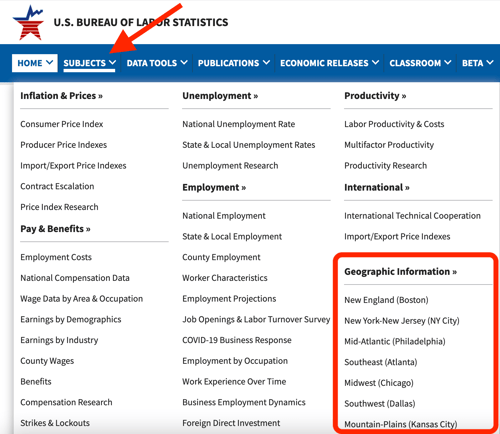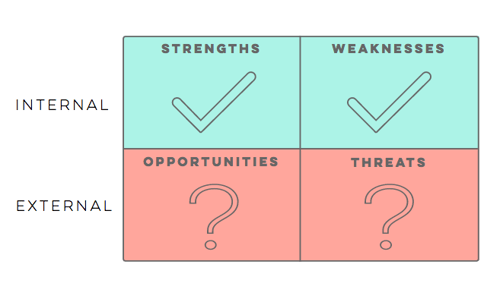No two companies are identical in the roles and responsibility breakdown between Corporate Marketing and Product Marketing. I’d like to share with you one way I’ve seen this work successfully, and hope you can take this as a starting point to find success for you and your team. What I encourage you to remember, as with any guide, there is no “silver bullet”; you should always take these best practices and mold them to what works best for the people on your team. Additionally, I’m defining Corporate Marketing as an umbrella term for all non-product marketing functions such as Demand Generation, Content Marketing, Public Relations, Communications, and Campaign Planning (to name a few).
If you take ONE thing away, please let it be this: Trust and respect your peers on their teams to fully own what they are responsible for. Rely on them to do their job, do it well, and then leverage what they bring to the table so that you can focus on what you are good at. Look to them, lean on them, and have them fulfill their end of the bargain. And, make sure you’re doing the same.
Product Marketing vs. Corporate Marketing
I think of the responsibilities of each group in this way: Product Marketers are the experts on identifying the perfect market, the buyers involved, what they care about, and how to map your solutions to meet their needs. When it relates to your GTM strategy, Corporate Marketers are experts at bringing all that knowledge to life in order to bring that market to your company.
Get the Guide to Competitive Intelligence for Product Marketers
Trust Exercise: Corporate Marketers, how often do you walk over to your Product Marketers and review the targets for your campaigns and demand efforts? Product Marketers, how often do you leverage the vast amount of data that Corporate Marketers have, to ensure the messaging you’ve created is actually working?
Breaking Down the Roles & Responsibilities
Let’s frame these roles using the very simple 5 Ws (+1 H) of responsibilities: the who, what, where, when, why, and how of tackling a market.
The Responsibility of Who
Owner: Product Marketing
Product Marketing is the sole responsible owner of who you need to target; right down to understanding their roles in the buying process, the departments they work in, the things they care about, the titles they carry, and the other people they interact with. The foundation of Product Marketing’s work relies on being intimately familiar with the buyers. PMMs spend a lot of time talking to customers, attending events (virtual and live), reviewing opportunities and sales notes, talking to analysts, and engaging in online communities. Furthermore, we understand not only their buying needs as a department, but also how that affects their needs as a person and the impact that has on the overall organization. Product Marketing then provides this information to the Corporate Marketing counterparts to make their efforts far more effective. The more granular that Corporate Marketing can get with their targeting, the more efficient their efforts will be, and they will get a higher return on marketing dollars spent.
The Responsibility of What
Owner: Product Marketing & Corporate Marketing
Both Product Marketing and Corporate Marketing have a shared responsibility in what to say to the market. Product Marketing is responsible for the messaging and narrative that helps align your solutions to the buyer’s needs. However, PMMs are not copywriters (in most cases); that responsibility should reside with the incredible skill set of Content Marketers. Product Marketers will be able to tell you what message and story you want to convey to whom, and at what times – but Corporate Marketing is responsible for taking those elements and turning them into ad copy, headlines, blog content, email subject lines, and any other place where messaging is used to reach the target audience. Content Marketers are experts at the tone that resonates with their audience and, due to their metrics, which types of content work best. Corporate Marketing are experts at the nuances of what works for ad copy vs. email subject lines, and why they can’t be the same thing.
The Responsibility of Where
Owner: Product Marketing & Corporate Marketing
Product Marketers know where we find the buyers, both geographically but also physically/virtually (conferences and online forums). Corporate Marketers are the absolute experts on where to place copy and content to reach those targets. Geographic and “watering holes” information provides vital data to Corporate Marketing, that can alter their entire campaign plans. What works for one region doesn’t always work for another, so being highly targeted is critical.
Additionally, Corporate Marketing should look to PMMs for where to reach that audience in-person or online, and PMMs should actually be speaking and participating actively in those communities. Is it better to have a booth at a conference or just a banner somewhere? That’s up to Corporate Marketing. They’re the experts on where it’s best to spend their dollars.
The Responsibility of When
Owner: Corporate Marketing
Corporate Marketers are the experts of when to reach the buyers, from the right time during the year in order to align to corporate campaign themes, all the way down to the right time of day to send an email. Corporate Marketing are the experts in timekeeping, and Product Marketers should trust them 100% to know this information. There are a lot of nuances to timing that Demand Generation and Social Media experts understand, and have spent years perfecting in your industry.
The Responsibility of Why
Owner: Product Marketing
PMM is responsible for the why, referring to all the needs of the buyers. PMMs know why you’re targeting those buyers, instead of another one, as well as why that buyer should care about your message. PMMs should also be intimately familiar with the annual revenue goals, so they may have additional information on why to push one product over another, in a larger portfolio. Corporate Marketers should rely heavily on PMM’s direction for why, and allow them to influence why we want to emphasize one message over another.
The Responsibility of How
Owner: Corporate Marketing
When it comes to going after that target market and its buyers, Corporate Marketers are the experts on how to reach them. Should we do it via email or paid ads? Account Based Marketing? Or inbound and nurture? Corporate Marketers know all of the avenues to reach a market, which ones work best, and when. This being an “H” instead of a “W,” almost sums up everything about reaching a target market. PMM should have a heavy influence leading up to this, but it’s ultimately up to Corporate Marketing to trust that, respect it, and then own how to bring all of that to life! And that is so critical to the success of a business!
Wrapping It All Up
This is one potential break down of responsibilities, and one that I’ve seen successfully work. However, no matter what your company does, it’s important to hold each group accountable to their responsibilities and to leverage their specialized knowledge and expertise. Both groups need each other to be successful. Don’t treat the other group as simply an input that you can tap on occasion, actually rely on them and bank your success on them doing their job properly. Doing this will build a much stronger relationship, and will allow your company to scale much faster.

Seeing is believing! Check out Crayon for yourself.
Take a Product TourRelated Blog Posts
Popular Posts
-
 The 8 Free Market Research Tools and Resources You Need to Know
The 8 Free Market Research Tools and Resources You Need to Know
-
 6 Competitive Advantage Examples From the Real World
6 Competitive Advantage Examples From the Real World
-
 How to Create a Competitive Matrix (Step-by-Step Guide With Examples + Free Templates)
How to Create a Competitive Matrix (Step-by-Step Guide With Examples + Free Templates)
-
 24 Questions to Consider for Your Next SWOT Analysis
24 Questions to Consider for Your Next SWOT Analysis
-
 How to Measure Product Launch Success: 12 KPIs You Should Be Tracking
How to Measure Product Launch Success: 12 KPIs You Should Be Tracking



